JUDICIARY
The Push for Parliamentary Democracy in Nigeria
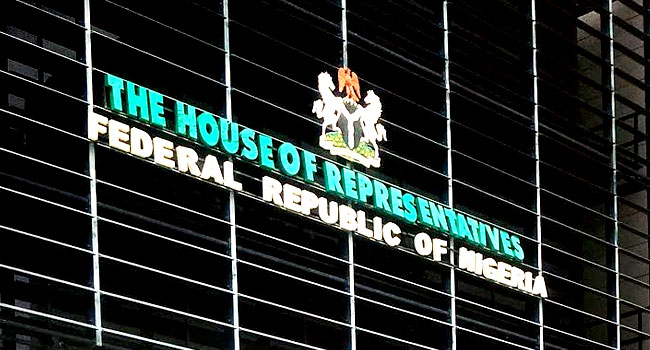
By Milcah Tanimu
The call for a transition from the current presidential system to a parliamentary system of government in Nigeria is gaining momentum, with proponents arguing that the existing system is not effectively delivering representative democracy and accountability. Abdusamad Dasuki, a member of the House of Representatives, has been vocal in advocating for this change, citing the need for a more pluralistic and accountable governance structure.
Dasuki highlights the challenges facing Nigeria under the current presidential system, describing it as faulty and prone to abuses of power. He emphasizes the need for a system that allows for greater accountability and responsiveness to the needs of the people, suggesting that a parliamentary system could offer a more effective solution.
The proposed transition to a parliamentary system has been met with support from some lawmakers and prominent figures, who see it as a means to reduce the cost of government and enhance governance efficiency. The envisioned parliamentary setup would involve the election of a Prime Minister and ministers from among elected representatives, fostering a more dynamic and accountable leadership structure.
In this proposed parliamentary system, Dasuki envisions figures like Bola Tinubu, Atiku Abubakar, and Peter Obi playing key roles in the parliament, reflecting a diverse and inclusive approach to governance. The aim is to create a system where leaders are held accountable by elected representatives and can be recalled if they fail to meet the expectations of the people.
Furthermore, Dasuki proposes starting the transition to parliamentary democracy at the local government level, suggesting that local government chairmen should be elected from among ward councillors. This approach seeks to decentralize power and promote grassroots participation in governance.
While the transition to a parliamentary system may face challenges and requires careful planning and implementation, proponents like Dasuki are committed to pursuing this change as a means to address the shortcomings of the current system. By engaging with stakeholders and seeking input from experienced statesmen, they hope to build consensus and support for this transformative shift in Nigeria’s governance structure.
JUDICIARY
Nigerian Bar Association President, Afam Osigwe SAN, Lauded For Transformative Leadership
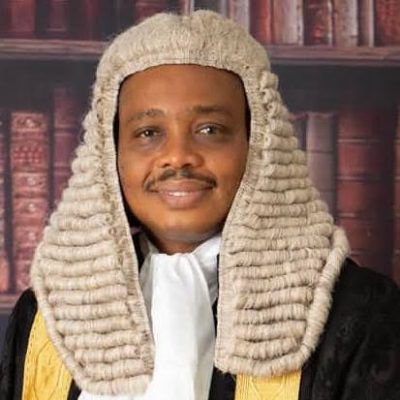
From Hassan Taiye
The Nigerian Bar Association (NBA) President, Afam Osigwe, SAN, has been praised for his visionary leadership and transformative impact on the legal profession. Since assuming office, Osigwe has demonstrated a steadfast commitment to justice, human rights, and the rule of law.
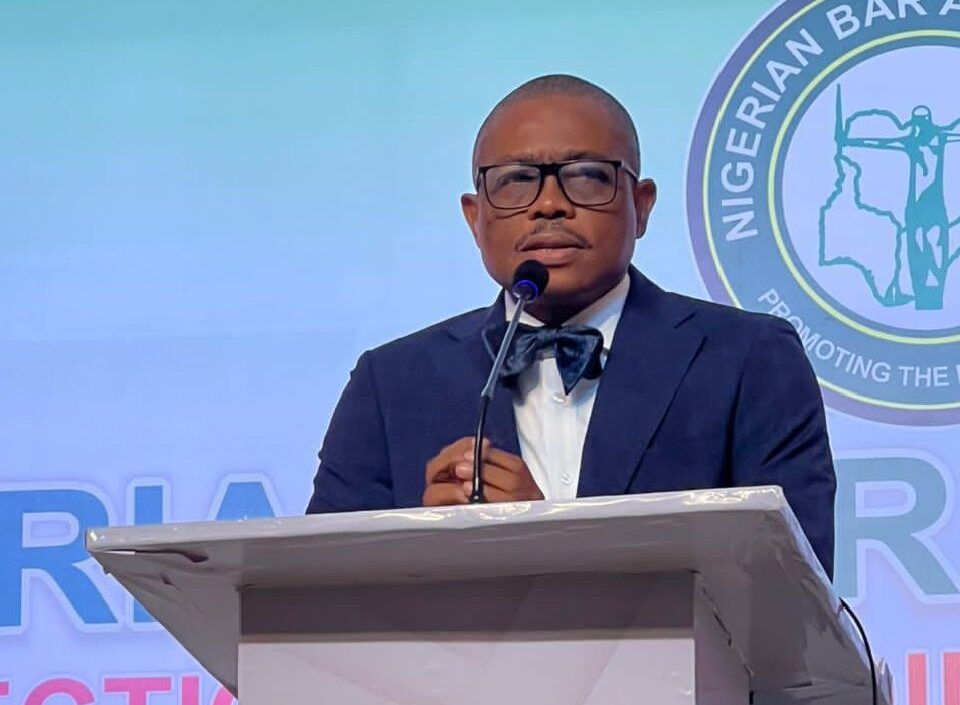
According to Barrister Hamza N Dantani, Osigwe’s leadership has been marked by bold initiatives, fearless advocacy, and groundbreaking reforms. He has restored the NBA’s traditional role of holding leaders accountable and promoting the rule of law, challenging unconstitutional actions and human rights abuses.
One of the notable achievements of Osigwe’s presidency according to Hamza, is the repositioning of the Institute of Continuing Legal Education (ICLE). The introduction of a mandatory Continuing Professional Development (CPD) regime has elevated professional competence and aligned the Nigerian Bar with international standards.
“Osigwe has also been instrumental in promoting human rights and public interest litigation. He has spearheaded campaigns against arbitrary arrests, electoral malpractice, and anti-democratic legislation, and established regional litigation committees nationwide”
“The NBA President’s commitment to technology and innovation has also been noteworthy. The launch of the Digital Annual Practice License and the digitization of the Letter of Good Standing have marked a new era in transparency and efficiency within the profession”
He further stated that ” Osigwe’s administration has prioritized the growth and success of young lawyers. The Nigerian Bar Association–Young Lawyers Forum (NBA-YLF) has introduced tailored mentorship, support programs, and funding initiatives to address the challenges faced by young lawyers”
“The 2025 NBA Annual General Conference, organized under Osigwe’s leadership, was hailed as one of the most successful in the history of the Association. The conference equipped lawyers with practical strategies to navigate contemporary legal and societal challenges.”
“Engine’s leadership style has been described as inclusive, humble, and genuinely committed to serving the legal profession. His detribalized approach has earned him respect across regions, political divides, and professional ranks.”
He expressed optimising that ” As Osigwe continues to lead the NBA, his legacy is expected to leave a lasting impact on Nigeria’s legal landscape. His commitment to justice, human rights, and the rule of law has restored the NBA’s image as the nation’s conscience”.
JUDICIARY
Odinkalu Applauds CJN Kekere-Ekun for Sanctioning Errant Judges
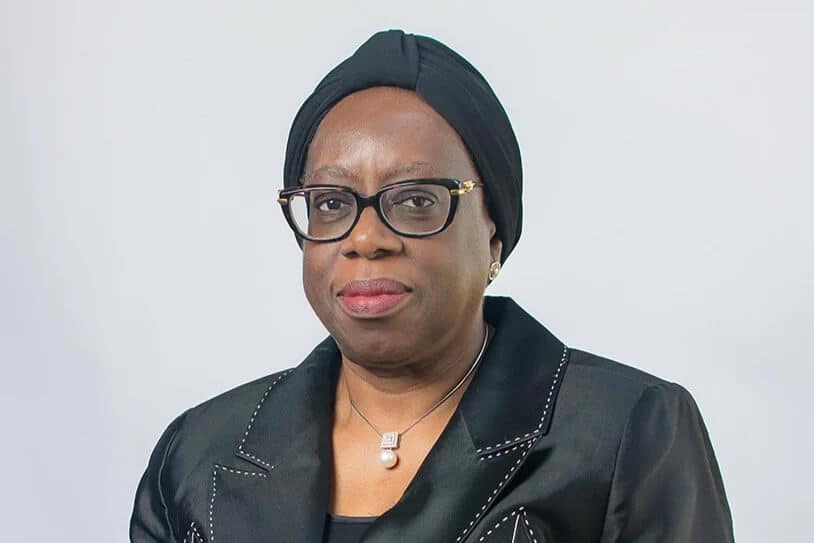
Professor Chidi Odinkalu, a legal scholar and judicial reform advocate, has praised the Chief Justice of Nigeria (CJN), Justice Kudirat Kekere-Ekun, for her decisive action in addressing misconduct within the judiciary.
The National Judicial Council (NJC) recently sanctioned five judicial officers for professional breaches, including age falsification and other misconducts. The decisions were made during the NJC’s 107th meeting held on November 13 and 14, 2024.
Judges Sanctioned for Misconduct
Among those sanctioned were:
- Justice Chukwuemeka Chikeka, Chief Judge of Imo State, who was recommended for compulsory retirement effective October 27, 2021. Justice Chikeka was found to have falsified his date of birth, with inconsistencies noted between 1956 and 1958. He was also directed to refund salaries and allowances received after his official retirement date.
- Hon. Kadi Babagana Mahdi, Grand Kadi of Yobe State, was also recommended for compulsory retirement after discrepancies in his date of birth were discovered. Records showed three different birth dates, while his actual year of birth was determined to be 1952. The NJC found that he should have retired 12 years ago and ordered him to refund salaries and allowances received during this period.
- Justice G.C. Aguma of Rivers State High Court and Justice A.O. Nwabunike of Anambra State High Court were suspended from duties for one year.
Odinkalu’s Commendation
Reacting to the NJC’s decision, Professor Odinkalu commended the Chief Justice of Nigeria for her swift and decisive response.
“Madam CJN, Kudirat Kekere-Ekun, has acted swiftly on this matter of age falsification by the Chief Judge of Imo State. She has done the right thing the right way,” Odinkalu stated.
He expressed hope that this move would signal a new era of improved judicial standards under Kekere-Ekun’s leadership of the NJC.
NJC’s Commitment to Judicial Integrity
The NJC emphasized its zero-tolerance for misconduct, reiterating its commitment to upholding integrity within the judiciary. The council urged judicial officers to adhere strictly to professional and ethical standards.
The actions taken are seen as a bold step toward restoring public confidence in Nigeria’s judicial system.
JUDICIARY
Fubara Warns Judges on Conflicting Judgments
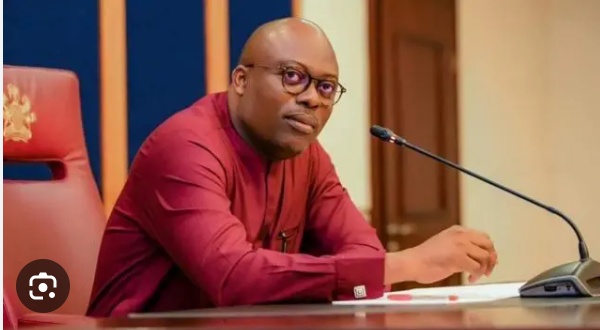
Rivers State Governor, Siminalayi Fubara, has called on judges and lawyers to avoid delivering conflicting rulings, which he says undermine justice and governance. His warning follows conflicting judgments that nearly disrupted the local government election in the state.
Speaking at the 2024/2025 Legal Year ceremony in Port Harcourt, Fubara criticized legal professionals who compromise their integrity for personal gain. He emphasized the sacred role of the judiciary in upholding justice and urged judges to remain steadfast in truth.
“You are the god that we are seeing. Your position is to stand and defend us,” Fubara stated, adding that those who compromise justice would face severe consequences, both legally and morally.
Fubara praised the Rivers State judiciary, particularly the High Court, for their support in maintaining stability despite external pressures. He acknowledged threats and assaults faced by judicial officers but encouraged them to remain resolute in their pursuit of justice.
In his sermon, Bishop Rt Rev Wisdom Budu Ihunwo echoed the governor’s concerns, highlighting the negative impact of conflicting judgments on Nigeria’s unity and governance. The bishop warned that those responsible for such actions would eventually face divine punishment.
Governor Fubara concluded by emphasizing the need for strong institutions to safeguard democracy and ensure societal prosperity.
-

 Uncategorized5 years ago
Uncategorized5 years agoFG, states urged to harness flooding for ranching, others with technology – Agbaje
-

 Headlines10 years ago
Headlines10 years agoBreaking: EFCC seals Borno House of Assembly, as Hon members take to their heels
-

 News11 years ago
News11 years agoNigeria Security Operatives Stage Manhunt For Homosexual Perpetrator
-

 News9 years ago
News9 years agoHow 21-year-old Girl fled community over accusation of lesbianism
-

 News10 years ago
News10 years agoYobe Gov Moves Against Deputy
-

 Opinion6 years ago
Opinion6 years ago7 signs she has friend zoned you
-
Technology4 years ago
Online job placement company headhunts women
-

 Headlines9 years ago
Headlines9 years agoBorno Dep Gov Abducts Another Church Leader





